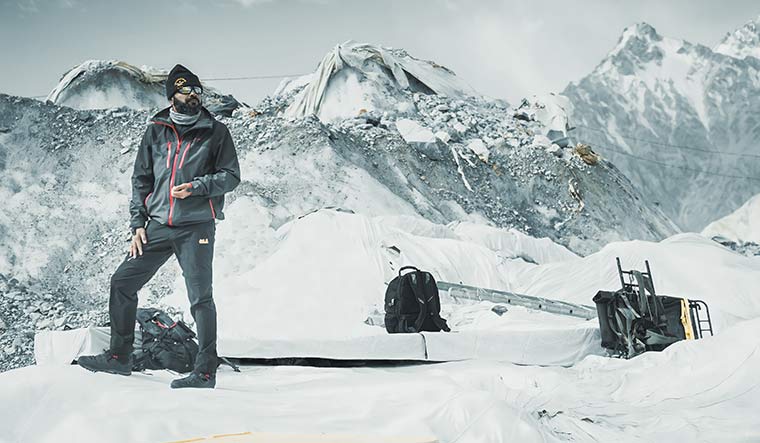Like a pendulum, Vivek Jacob’s life has swung from one extreme to the other. As a member of the 9 Para regiment of the Indian Army—one of the most elite special forces units in the world—he operated with utmost confidentiality. Whether it was dodging bullets in the riskiest missions or staying undercover for months in hostile terrain, details of his professional life were kept a secret from friends and enemies.
Today, he is a YouTube star whose talks have gone viral. “Many young people write to me on various issues, including relationship problems. I feel it is important to reply to all of them…. I feel I have a perspective that will heal them,” he says.
Post his retirement from the Army in 2017, Jacob has acquired unusual fame within a short span of time. His indomitable spirit, philosophical takes and candid replies on his special forces stint are a big hit. Walking the thin line between life and death in combat has played a major role in shaping Jacob’s spiritual leanings. “War or conflict makes you realise that you can leave this universe anytime,” he says. “Combat brought a lot of things into perspective in my life. Who are we? Why are we here killing each other? We could all live in harmony instead.”
Jacob has just returned from the Himalayas, where he had earlier spent time hunting down terrorists. This trip, however, was different. “It was magical. I experienced a lot of beautiful things,” he says. He is setting up a base there to encourage people to take up adventure activities and learn life skills. He, along with a few other Army veterans, run CLAW (Conquer Land And Water) which provides opportunities, especially for disabled people, to realise their dream of adventure sports.
“We are a small group of people, but we are growing,” he says. “When I started out I had only one thing in mind—to fulfil a promise I made to an Air Force officer, paralysed from the neck down, who asked me if he could go scuba diving. I realised that to take him scuba diving, I would have to take a lot of other people, too. I had to turn it into an event as it required special equipment, doctors and so many other things. I also did not have the funding. Since there are many people with disabilities who have the same dream, I thought it would be easier if more people were involved. We travelled from Chandigarh to Lakshadweep for this purpose. We trained 120 paralysed people in scuba diving.”
Special forces training is considered to be extremely gruelling, testing the physical and mental strength of the participants. A Malayali who grew up in north India as the son of a para commando, Jacob enrolled knowing well what he was up against. His training included physical activities like walking 60km to 80km within a stipulated time period, while carrying heavy loads. But what really drained Jacob was a pen and paper. “It is not easy to translate a Hindi newspaper into English at 1am from a hideout full of dirty water and mosquitoes,” he says.
Overcoming that and more, Jacob served for 10 years in the special forces. Like many Army veterans, the transition to civilian life was not easy. Years of being conditioned to fight in high-performance zones takes a toll on you. In the US, there have been many instances of post-traumatic stress disorder (PTSD) driving Army veterans into taking their lives or going on a shooting spree. Jacob feels there is an immediate need for professional programmes which will provide psychological help to the officers, even after retirement. The senior leadership within the Army can do a lot in this area, he feels. “You have to be in a constant state of operational readiness. For years there is no relaxation,” he says. “When you enter civilian life that danger is not there, but you are conditioned to look at things like that. There should be counselling on how to adjust to the new life.”
Jacob adjusted by indulging in his love for carpentry, adventure sports and meditation. And now he wants to share his insights with the world.


